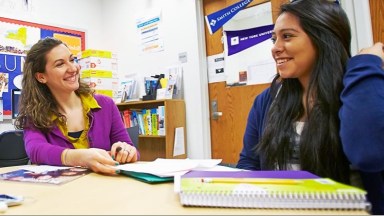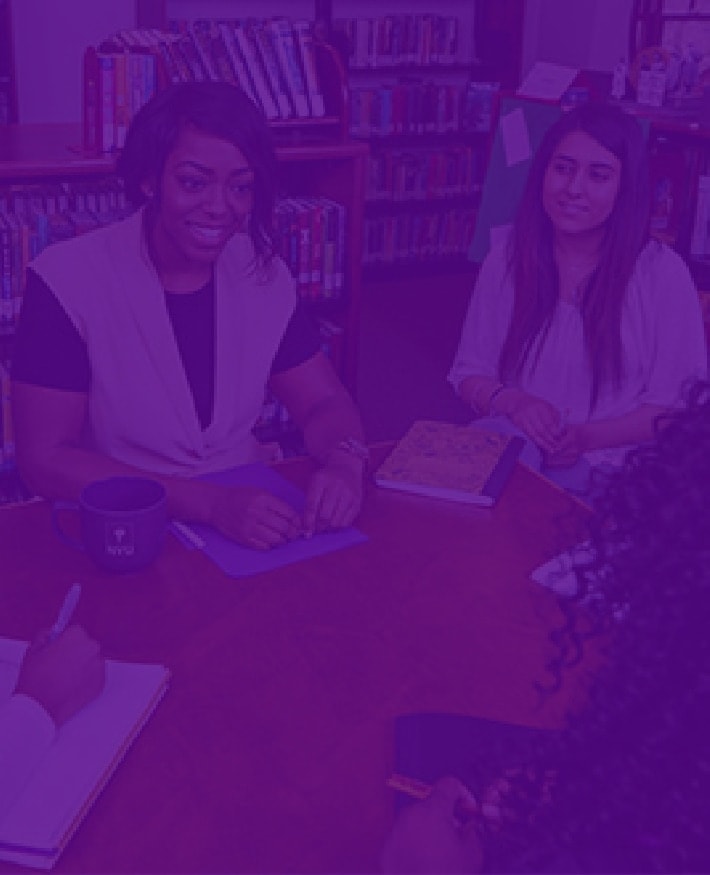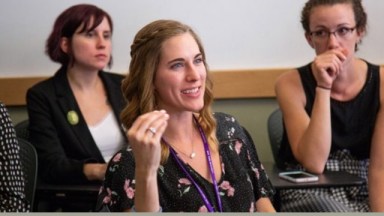
Online Master’s in School Counseling
The online master’s in School Counseling program prepares you to guide pre-K–12 students toward success by becoming a school counselor. After graduating, you will be able to:
- Create school programming that promotes the wellbeing of students, families, and communities.
- Facilitate the social, cultural, and academic development of pre-K–12 students.
- Develop approaches that foster cultural inclusiveness.
- Use relationship-building skills to help close achievement and opportunity gaps.
The master’s in school counseling offers an optional concentration in bilingual school counseling, in which you will focus on bilingual and multicultural theory and learn how to approach challenges facing students who speak English as a second language. Ask an admissions counselor about the School Counseling or Bilingual School Counseling Dual Degree option.








